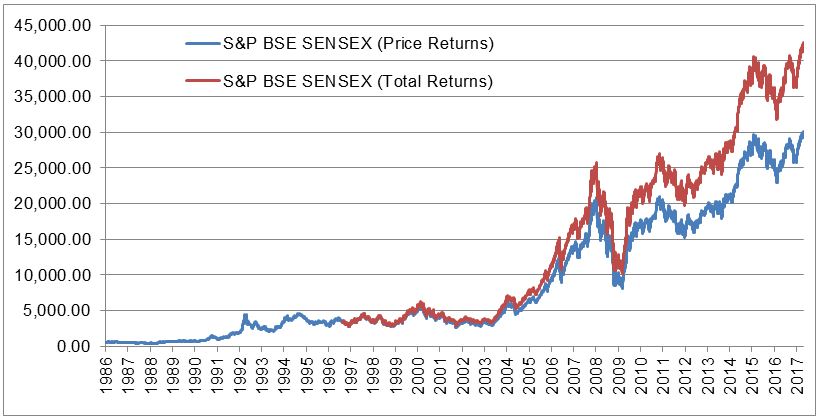Post-Export Ban: Congo's Cobalt Quota Plan And Its Effect On Market Stability

Table of Contents
The Rationale Behind Congo's Cobalt Quota Plan
The DRC government's justification for implementing a cobalt quota system rests on several pillars: maximizing revenue from cobalt exports, improving environmental regulations, supporting local processing, and preventing resource depletion. The plan aims to transition the country from simply exporting raw materials to participating more meaningfully in the value chain, increasing its economic benefits.
-
Increased Government Revenue: The DRC seeks to significantly boost its income from cobalt exports, channeling the increased revenue into national development projects. Specific revenue targets haven't been publicly disclosed, but analysts expect substantial increases based on current cobalt prices and projected export volumes.
-
Improved Environmental Regulations: The quota system is intended to provide a mechanism for enforcing stricter environmental regulations within the cobalt mining sector. This includes controlling illegal mining activities, reducing water pollution from mining operations, and minimizing deforestation. New legislation is currently under review, aiming to strengthen environmental standards and compliance.
-
Support for Local Processing: A key goal of Congo's cobalt quota plan is to encourage the development of cobalt processing facilities within the DRC. This would involve refining raw cobalt ore into more valuable intermediate and final products, adding value locally and creating more high-skilled jobs.
-
Prevention of Resource Depletion: Sustainable management of cobalt reserves is a central theme. The quota system is designed to ensure responsible mining practices, preventing the rapid depletion of this vital resource. The government envisions a long-term, sustainable cobalt industry that benefits future generations.
Potential Impacts on Global Cobalt Supply and Pricing
The implementation of Congo's cobalt quota plan carries significant potential consequences for the global cobalt market. A sudden reduction in cobalt exports from the DRC could lead to supply chain disruptions and price volatility.
-
Supply Chain Disruptions: The DRC supplies a substantial portion of the world's cobalt. A restrictive quota system could create significant shortages, particularly impacting battery manufacturers.
-
Impact on Battery Manufacturers: The electric vehicle (EV) and battery storage industries are heavily reliant on cobalt. Supply disruptions could lead to production delays, increased costs, and potential price increases for EV batteries.
-
Geopolitical Implications: The quota system might trigger a shift in the global cobalt landscape, potentially encouraging diversification of supply sources and accelerating the development of alternative battery technologies that require less or no cobalt. This could lead to increased competition among cobalt-producing countries and potential trade disputes.
-
Statistical Data: Current estimates suggest that the DRC produces over 70% of the world's cobalt. Even a moderate reduction in exports could have a significant impact on global supply and pricing. Predictions for price fluctuations vary considerably depending on the specific quota levels implemented. Alternative cobalt sources, including those in Australia, Canada, and Zambia, are being explored, but scaling up production will take time and investment.
The Role of Artisanal Mining in Congo's Cobalt Quota Plan
Artisanal mining plays a significant role in the DRC's cobalt production, accounting for a substantial percentage of the total output. The impact of Congo's cobalt quota plan on these miners is a critical consideration.
-
Challenges for Artisanal Miners: Many artisanal miners operate informally and lack the resources or infrastructure to comply with stricter regulations. The quota system could disproportionately affect them, leading to job losses and economic hardship.
-
Formalization Efforts: The DRC government is actively pursuing initiatives to formalize artisanal mining operations, integrating them into the formal sector and providing access to training, technology, and financing. However, the success of these efforts remains uncertain.
-
Social and Economic Implications: The potential social and economic consequences for artisanal mining communities are substantial. Job losses could lead to increased poverty and social unrest. Successful formalization is key to mitigating these negative impacts.
Alternative Strategies for Sustainable Cobalt Development in the DRC
Instead of solely relying on a quota system, the DRC could explore alternative strategies to achieve its goals of increased revenue, improved environmental practices, and enhanced local processing.
-
Investing in Infrastructure: Improving transportation networks, building processing facilities, and increasing access to reliable energy would significantly enhance the efficiency and sustainability of cobalt mining.
-
Strengthening Governance and Transparency: Tackling corruption, improving regulatory oversight, and increasing transparency in the cobalt sector are crucial for long-term sustainability.
-
Promoting Responsible Sourcing and Traceability: Supporting initiatives that promote responsible cobalt sourcing and traceability throughout the supply chain can enhance the ethical and environmental credentials of DRC cobalt.
Conclusion:
Congo's cobalt quota plan presents a complex challenge with far-reaching implications for the global cobalt market. While the goals of increasing government revenue, improving environmental standards, and fostering local processing are laudable, the potential negative impacts on global supply chains and artisanal miners need careful consideration. Alternative strategies focusing on infrastructure development, improved governance, and responsible sourcing offer more sustainable pathways to a thriving cobalt industry in the DRC. Further dialogue and collaboration between the DRC government, international organizations, and industry stakeholders are crucial to developing a balanced approach that benefits both the DRC and the global community that relies on this essential resource. Understanding the nuances of Congo's cobalt quota plan and its wider implications is paramount for all involved in the global cobalt market.

Featured Posts
-
 Paddy Pimblett Names Ilia Topuria As A Top Contender At Ufc 314
May 15, 2025
Paddy Pimblett Names Ilia Topuria As A Top Contender At Ufc 314
May 15, 2025 -
 Double Digit Gains On Bse Sensex Rally Highlights Top Performers
May 15, 2025
Double Digit Gains On Bse Sensex Rally Highlights Top Performers
May 15, 2025 -
 Chinas Fentanyl Trade A Price To Pay Former Us Envoy Warns
May 15, 2025
Chinas Fentanyl Trade A Price To Pay Former Us Envoy Warns
May 15, 2025 -
 Analyzing The Pattern Of Presidential Pardons During Trumps Second Term
May 15, 2025
Analyzing The Pattern Of Presidential Pardons During Trumps Second Term
May 15, 2025 -
 Chandler Doubts Pimblett Can Handle His Aggressive Style At Ufc 284
May 15, 2025
Chandler Doubts Pimblett Can Handle His Aggressive Style At Ufc 284
May 15, 2025
Latest Posts
-
 Anthony Edwards Paternity Case Resolved Custody Decision Announced
May 15, 2025
Anthony Edwards Paternity Case Resolved Custody Decision Announced
May 15, 2025 -
 The Latest On Anthony Edwards Baby Mama Drama A Twitter Analysis
May 15, 2025
The Latest On Anthony Edwards Baby Mama Drama A Twitter Analysis
May 15, 2025 -
 The Anthony Edwards Baby Mama Saga Unfolding Online
May 15, 2025
The Anthony Edwards Baby Mama Saga Unfolding Online
May 15, 2025 -
 Court Awards Ayesha Howard Custody After Anthony Edwards Paternity Dispute
May 15, 2025
Court Awards Ayesha Howard Custody After Anthony Edwards Paternity Dispute
May 15, 2025 -
 Twitter Explodes Over Anthony Edwards Baby Mama Drama
May 15, 2025
Twitter Explodes Over Anthony Edwards Baby Mama Drama
May 15, 2025
